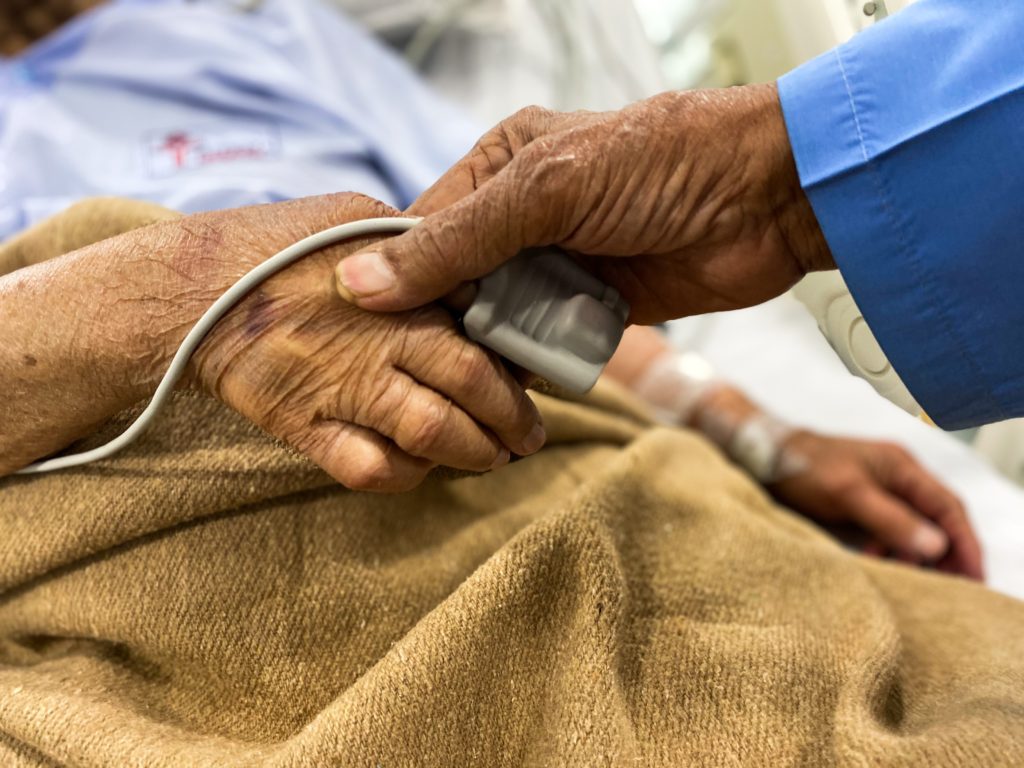Surviving a traumatic event has psychological and physiological repercussions that can follow an individual for the rest of their life, right up until their final days. Recognizing this, post-acute health care provider AccentCare has made a company-wide push to integrate trauma-informed care into their services and staff support programs.
While confronting their mortality is inherently traumatic for patients, hospices are seeing that some who have gone through extreme events may need an extra layer of support, including veterans and victims of past abuse, among others.
“From a trauma-informed lens, we’re assessing to see what the history of this individual is to make sure we’re not doing anything that is going to retrigger that trauma,” Russell Hilliard, senior vice president of market expansion initiatives at AccentCare, told Hospice News. “It’s a level of education that leads to sensitivity around the way that we provide care, to minimize triggers of trauma, but then also to walk gently through the life of a person who has been traumatized.”
A social worker by training, Hilliard also holds a Ph.D. in music education with an emphasis on music therapy.
AccentCare is a portfolio company of the private equity firm Advent International, which purchased the provider from Oak Hill Capital Partners in 2019 for an undisclosed sum. Dallas-headquartered AccentCare cares for 210,000 patients from more than 260 locations in 31 states and the District of Columbia. The company employs more than 30,000 people.
The company’s continuum of services range from personal, non-medical care to skilled nursing, rehabilitation, palliative care, hospice, home health, telehealth and care management.
AccentCare’s 2020 merger with Seasons Hospice & Palliative Care made the combined company the fourth-largest hospice provider in the nation, CEO Steve Rodgers told Hospice News when the transaction was announced.
The company’s focus on trauma-informed care is partially driven by a recognition of the traumatizing effects of the COVID-19 pandemic on the general population and health care workers in particular.
An initial step at AccentCare is bringing these principles into their patient assessment process. Clinicians will ask patients early on about life experiences that could have led to trauma, such as war, past abuse, or surviving events such as the Holocaust, to name a few, according to Hilliard.
Patient assessments help clarify which forms of care would most benefit the patient, whether this is through medication, instructions on comfort level with being touched, additional mental health services or offerings like music therapy, according to Hilliard.
Trauma-informed interventions include detailed communication about the patients’ experiences and needs, as well as modification of care plans to address them. They also work to provide a safe and supported space in which patients and families can discuss their trauma.
But the company’s approach does not begin and end with the patient. AccentCare is also applying trauma-informed care delivery to bereavement and caregiver support.
“We’re treating the patient and family as a holistic system,” Hilliard said. “If the family member has experienced trauma or is still experiencing trauma, it’s going to impact their ability to navigate through the anticipatory grieving process and the bereavement process after the patient passes away,”
For example, Hilliard recalled a patient’s son who experienced trauma as a result of his father’s struggle with long-term alcoholism. Due to those experiences, the son needed additional support when his father entered hospice.
In addition to this internal initiative, AccentCare is offering a free, year-long online continuing education program on trauma-informed care. The program is available to any health care provider.
A third component is directed at AccentCare’s staff. Hospice workers encounter death on an almost daily basis, and this inevitably takes an emotional toll.
This reality has been compounded by the pandemic’s impact on health care workers, according to Hilliard. Clinicians not only had to witness the suffering of patients and families and the massive death toll or the pandemic, but they had to cope with the fear of contracting the virus and spreading it to vulnerable loved ones.
Assisting staff in managing these experiences can in turn help reduce burnout that could lead them to leave their jobs or the field, Hilliard told Hospice News, particularly during a time when health care providers across the board are facing severe labor pressures.
“A major cost to all health care entities in this day and age is lack of staff and retention. We can better retain staff because we’ve supported them through their own trauma, Hilliard said. “Being good stewards of that trauma, they will be able to do the work that they’re called to do for longer periods of time in a way that makes them feel supported and successful.”
Companies featured in this article:
AccentCare, Advent International, Oak Hill Capital Partners, Seasons Hospice & Palliative Care



